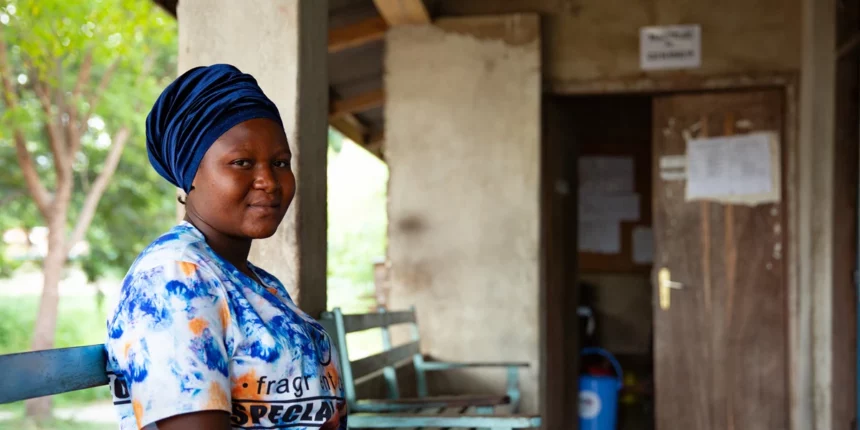The year 2020 started just like any other year for me.
I had stopped making New year’s resolutions years ago but I made an exception in 2020.
I would complete a personal goal I had started in 2019 and fundarise six years worth of school fees for Perfect and Princess the two Ugandan girls I sponsor.
Princess and Perfect
By 4 February 2020, I had raised enough to pay for the girls first year of secondary school and six weeks into their first term and the girls were home again.
The whole world had closed down due to COVID-19 and so had the girls’ school in Uganda.
A year on, schools across the globe are still closed and according to reporting from UNICEF, 168 Million children have been out of school for a year
Most of these children are in countries without the necessary infrastructure to support remote learning. Princess and Perfect are part of that statistic.
Whilst Princess and Perfect passed their time growing vegetables under the protection of their older sister, for some girls the extended school closures have meant having to grow up fast due to uncertainty about what the future holds for them.
Princess andPerfect’s corn crop
As one of the local teachers explained to me via social media,
The prolonged closure of schools has had far reaching implications for these youngsters .
The process of growing up is complicated and children have to contend with numerous social problems as well as exploring and understanding oneself during early childhood and adolescence.
The adolescent stage is characterized by rapid growth and change physically, socially, spiritually, morally and intellectually.
Properly structured school programs help students resolve emotional, social or behavioral problems and help them develop a clearer focus or sense of direction.
In the course of the year whilst schools have been closed, girls have gone through physical changes and some have lost focus and sense of direction that is usually built into school programmes.
Consequently, some girls have been married off early,, migrated to towns and cities in search work as housekeepers/maids or joined millions of others as petty traders to make ends meet.
Girls from very poor households have suffered the worst outcomes, as some have been forced into prosititution.
Consequently the incidence of teenage pregnancies and abortions has gone up and it is likley that levels of HIV/AIDS infection will rise amongst this age group.
The government has proposed a staged reopening of schools and whilst pregnant girls will be allowed back, the situation for those girls who have already given birth remain unclear in any event some may have lost interest in school especially if they were not academically gifted.
This situation is compounded by the financial circumstances of parents and guardians, most of whom lost their incomes during the lockdown.
Girls from such homes will not be able to meet the school fees requirements and will therefore drop out of school indefinitely.
The women in the village are worried about the future of their sons and daughters with the ongoing challenges of Covid19.
Those living in extreme poverty with limited access to resources and health care are particularly vulnerable.
The circumstances set out by this school teacher are not unique to Ruhanga and as reported by The Daily Monitor, the incidence of teenage pregnacy and child marriages was up and that within four months of the lockdown at least 2300 schools girls were pregnant whilst 128 had been married off
With businesses closed too and sources of income cut off parents and guardians found themselves in unfamiliar circumstances of having their children at home full time.
They had to feed them as well as take on all those things that teachers do but are out of sight. In a country without social protections such as furlough that western countries were able to deploy to protect their citizens, the impact on girls is significant and is still unfolding.
Hairdressing Workshop
Who is celebrating International Women’s Day?
The situation in Ruhanga and the rest of Uganda is most likely unfolding in low income countries across the globe.
I am preoccupied with several questions today. The most pressing of those questions is,
How can we make International Women’s Day meaningful to girls and women without social protections to enable them to thrive post-covid?
The answer to this question worries me for a couple of reasons,
First, rich countries such as the UK that have previously had generous aid programmes are rethinking this generosity.
As reported by The Guardian, the UK has plans to cut aid packages to countries in need by as much as 50% .
These proposed cuts come on the back of concerns about the UK’s gender equality programmes
Second, Individuals who would ordinarily donate to charities working with women and girls are struggling financially too.
This has implications for programmes such as the one my organisation LTHT runs in the Ruhanga and yet we have seen a huge increase in the demand for help.
For instance, on a single day in December 2020, 20 girls turned up for help. Without the capacity to take in that many girls, we had to turn them away. This was a difficult decision because we know there is nowhere else for these girls to go.
My other questions are to do with access to covid-19 vaccines.
Will these be available to women and girls in villages such as Ruhanga or will the elite in those countries be prioritised?
I would be interested in your views on these questions.
To support the Skills for girls project in Ruhanga please make a donation at http://uk.virginmoneygiving.com/fund/skillsforgirls
